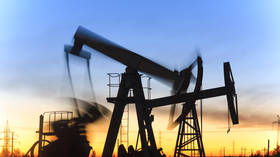EU cashing in on cheap Russian oil – The Economist

The supply of Russian oil to the European Union rose by 14% between January and April, from 750,000 to 857,000 barrels per day, The Economist reported on Wednesday, citing data by Argus Media. This comes as Brussels has been calling to completely stop energy imports from the country.
According to the report, the latest EU embargo on Russian oil applies only to seaborne crude and petroleum products, for now covering just 75% of imports from Moscow. Oil supplied by pipeline to a handful of countries in central and eastern Europe is temporarily exempt, it said. “Refiners in these countries are snapping up cheap Russian crude that most Western buyers are shunning.”
Germany is the only recipient country to have reduced imports via the Russian Druzhba pipeline since the outbreak of war in Ukraine, data showed. Druzhba, which is one of the longest and biggest oil pipeline networks in the world, carries the energy source some 4,000 kilometers from the eastern part of European Russia to refineries in the Czech Republic, Germany, Hungary, Poland and Slovakia. In January Berlin received half of the Druzhba oil and, by April, just a third.
The Czech Republic and Slovakia say they back an eventual ban on imports through Druzhba, but want a two- to three-year adjustment period. Meanwhile, Hungary’s prime minister, Viktor Orban, has been opposing a full ban on Russian oil imports, saying this would drop an “atomic bomb” on his country’s economy.
According to the Economist report, there’s “little financial incentive for refiners to ditch Russian supply,” while Urals crude is trading considerably below the international benchmark Brent. Refiners importing through the pipeline bought it at a discount of up to $40 per barrel compared with North Sea oil last month, Argus Media data showed.
“EU leaders insist that the Druzhba exemption will be revisited. In the meantime, the pipeline looks set to test European friendships,” the report said.
For more stories on economy & finance visit RT's business section













